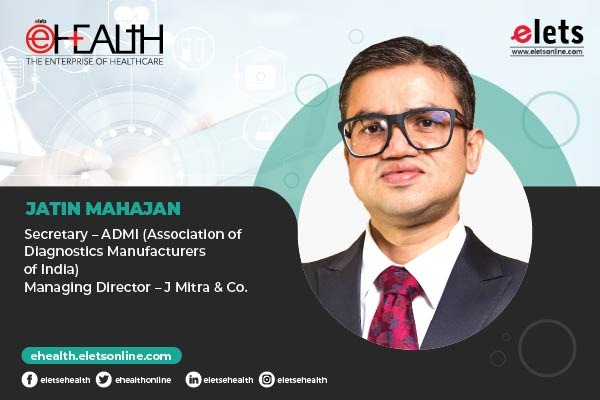
The healthcare industry is undergoing rapid transformation due to digital disruptions. Emerging technologies and trends are reshaping how healthcare services are delivered, improving patient outcomes, and reducing costs. Some of the most promising technologies and trends that are revolutionising healthcare are:
1. AI and Machine Learning play a significant role in healthcare by helping to analyse vast amounts of data, improve diagnostics, and personalise treatment plans. Some critical applications include:

- Diagnostics: AI algorithms help identify patterns in medical images, such as X-rays and MRIs, leading to faster and more accurate diagnoses.
- Drug discovery: AI can analyse large datasets to identify potential drug targets and speed up the development of new medications.
- Personalised medicine: Machine learning can help predict individual patient responses to treatments, enabling doctors to tailor therapies to each person’s unique needs.
Generative AI has promising applications in IVD, medical devices, and diagnostics. This technology can simulate and generate new data based on existing data sets. For example, in healthcare, Generative AI could be used to create synthetic patient data, aiding in developing and testing new medical devices and diagnostics tools without compromising patient privacy. It can also predict disease progression or patient responses to treatment. Integrating Generative AI into healthcare is expected to enhance personalised medicine, improving patient outcomes.
2. Telemedicine allows healthcare providers to consult with patients remotely, using video conferencing and other digital communication tools. In addition, remote patient monitoring, which involves tracking patients’ vital signs and other health data from a distance, will help doctors identify potential health issues before they become critical.
3. The Internet of Medical Things (IoMT) is the interconnected network of medical devices, sensors, and software that collect and share health data. Examples of IoMT devices include wearable fitness trackers, intelligent insulin pumps, and remote patient monitoring systems. These technologies help healthcare providers monitor patients’ health in real-time, leading to more proactive and personalised care.

4. Robotics and Automation are transforming various aspects of healthcare, from surgery to rehabilitation. Some examples include:
- Robotic surgery: Surgical robots can assist surgeons in performing complex procedures with greater precision and control.
- Rehabilitation robots: These devices can help patients recover from injuries or surgeries by providing support and guidance during physical therapy exercises.
- Pharmacy automation: Robots can help automate tasks such as dispensing medications, reducing the risk of human error and improving efficiency.
5. Blockchain Technology can potentially improve data security and interoperability in healthcare. By creating a decentralised and secure health information record, blockchain can help prevent data breaches and ensure patient records are easily accessible to authorised healthcare providers.
6. 3D Printing is revolutionising healthcare by enabling the production of customised medical devices, prosthetics, and even human tissues. This technology will help reduce costs, improve patient outcomes, and accelerate the development of new treatments.
7. Virtual Reality (VR) and Augmented Reality (AR) technologies are being used in healthcare for various applications, such as:
- Medical training: VR simulations help train medical students and professionals in a safe and controlled environment.
- Pain management: VR provides immersive experiences that help distract patients from pain during procedures or rehabilitation.
- Physical therapy: AR overlays digital information onto the physical world. It helps patients perform exercises correctly and tracks their progress.
8. Genomics and Precision Medicine advancements enable healthcare providers to develop personalised treatment plans based on an individual’s genetic makeup. This approach will help identify the most effective interventions for specific patients, minimising the risk of adverse side effects and improving overall outcomes.
9. Nanotechnology involves manipulating materials at the atomic or molecular level and has numerous potential applications in healthcare, such as targeted drug delivery, regenerative medicine, and disease detection. For example, nanoparticles can be engineered to deliver medication directly to cancer cells, minimising damage to healthy tissue and improving treatment efficacy.
10. Digital Therapeutics are software-based interventions designed to prevent, manage, or treat medical conditions. These solutions often involve mobile apps, wearable devices, or other digital tools to help patients manage their health and adhere to treatment plans. Digital therapeutics can complement traditional therapies or standalone treatments for various conditions, such as chronic pain, mental health disorders, and diabetes.
11. The increasing availability of Health Data Analytics from electronic health records, wearable devices, and other sources has led to the rise of health data analytics. By applying advanced analytical techniques to large datasets, healthcare organisations can uncover insights that lead to improved patient care, more efficient operations, and better decision-making.
12. Voice Assistants and Chatbots are becoming increasingly popular in healthcare, providing patients with convenient access to information and support. These AI-powered tools can help answer questions about medication, schedule appointments, and even offer mental health support. They can also assist healthcare professionals in tasks such as documentation and accessing patient information, allowing them to focus more on patient care.
13. Ethical AI and Bias Reduction will be another critical aspect. Addressing ethical concerns and reducing algorithm bias is crucial as AI and machine learning become more prevalent in healthcare. Ensuring that AI models are transparent, fair, and unbiased will help build trust in these technologies and ensure they are used responsibly and effectively.
The future of healthcare will be shaped by these emerging technologies and trends, leading to more efficient, personalised, and accessible care for all. They demonstrate the diverse and rapidly evolving landscape of digital disruptions in healthcare. As these innovations continue to develop, healthcare providers must adapt and embrace these changes to stay competitive and improve patient outcomes.
Views expressed by Jatin Mahajan, Secretary – ADMI (Association of Diagnostics Manufacturers of India), Managing Director – J Mitra & Co., New Delhi
Be a part of Elets Collaborative Initiatives. Join Us for Upcoming Events and explore business opportunities. Like us on Facebook , connect with us on LinkedIn and follow us on Twitter , Instagram.












